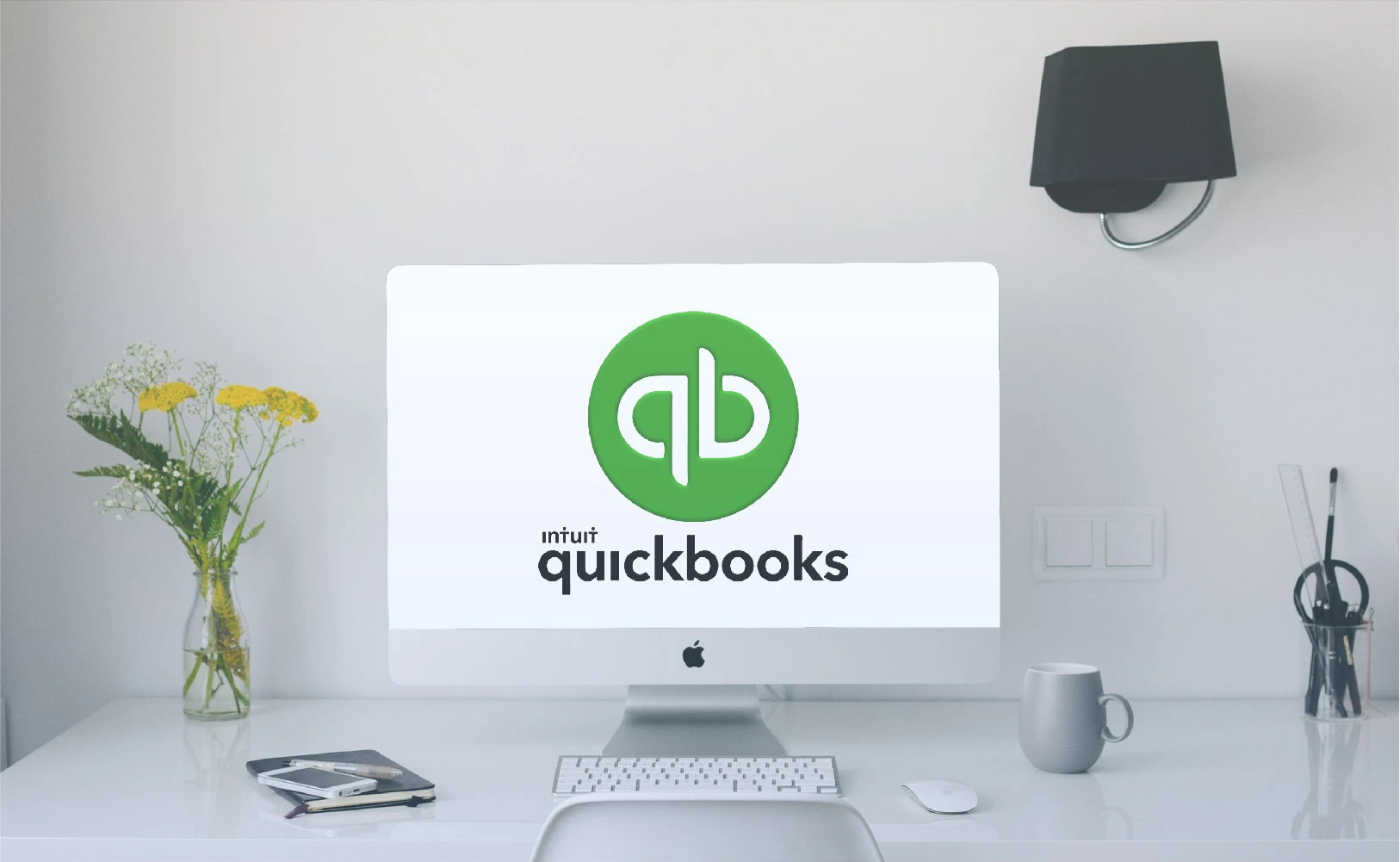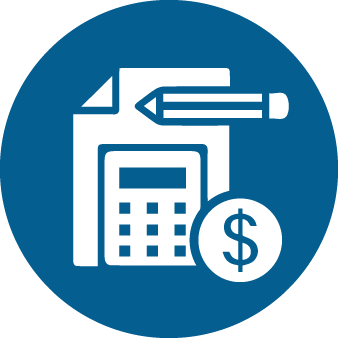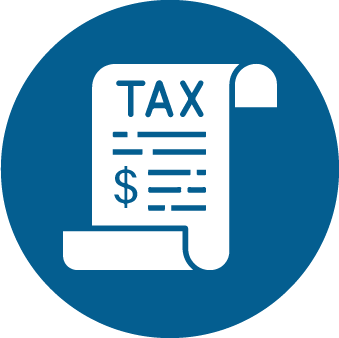If you are a business owner or even just a freelancer, you must be familiar with the QuickBooks software as it a pretty popular software accounting program that helps a lot with all the accounting steps, it saves time and effort as well, keeps the business transactions shorter and smarter.
What is a QuickBooks?
QuickBooks is a popular accounting software package developed and marketed by Intuit. It is used by small and medium-sized businesses to manage their financial and accounting processes such as invoicing, billing, payroll management, inventory management, and bank reconciliation.
QuickBooks is available in both desktop and online versions. The desktop version is installed on a local computer, while the online version is cloud-based, meaning it can be accessed from anywhere with an internet connection.
What is a QuickBooks used for ?
- QuickBooks can also generate financial reports, track expenses, and provide insights into the financial health of a business. It helps businesses to streamline their accounting processes and make informed financial decisions.
- QuickBooks is designed to be user-friendly and does not require extensive accounting knowledge. It provides a simple interface and intuitive workflows to help users manage their finances easily.
- QuickBooks also integrates with a variety of other software tools, including point-of-sale systems, customer relationship management (CRM) software, and e-commerce platforms, to streamline business operations and improve efficiency.
Check QuickBooks Services in Clifton New Jersey
Functions of Quickbooks
- QuickBooks offers various features and plans that cater to different business needs and sizes. For example, the Self-Employed plan is designed for freelancers and independent contractors, while the Plus plan is suitable for small businesses with more complex accounting needs.
- QuickBooks is widely used by businesses across different industries, including retail, healthcare, construction, and professional services.
Overall, QuickBooks is a powerful and flexible accounting software that can help businesses of all sizes manage their finances effectively.
What are 3 benefits of using QuickBooks ?
There are many benefits to using QuickBooks as your accounting software, but here are three key benefits:
- Time-saving automation: QuickBooks automates many of the repetitive and time-consuming tasks involved in accounting, such as data entry, bank reconciliation, and financial statement preparation. This saves business owners valuable time that can be used to focus on other important aspects of running their business.
- Improved accuracy: Manual accounting methods are prone to errors, which can have serious consequences for a business. QuickBooks helps to minimize these errors by automating many of the processes involved in accounting, reducing the risk of mistakes. Additionally, QuickBooks provides real-time financial information, allowing business owners to make informed decisions based on up-to-date data.
- Enhanced financial control: QuickBooks provides business owners with greater control over their finances by providing a clear overview of their financial situation. This includes features such as invoicing, payment tracking, and expense management, which help to ensure that all financial transactions are properly recorded and accounted for. Additionally, QuickBooks provides a range of reporting options that allow business owners to analyze their financial data and make informed decisions about their business.
When was QuickBooks founded ? And Who invented Quickbooks ?
The history:
- QuickBooks is a popular accounting software that was first developed by Scott Cook and Tom Proulx in 1983. Initially, the software was called Quicken, and it was designed to help households and small businesses manage their finances. However, in 1985, Cook and Proulx realized that there was a significant market for accounting software tailored specifically for small businesses, and they decided to focus their efforts on developing QuickBooks.
- The first version of QuickBooks was released in 1992, and it quickly gained popularity among small businesses due to its user-friendly interface and affordable pricing. By 1994, QuickBooks had become the leading accounting software for small businesses, and it was acquired by Intuit, a financial software company, the same year.
- Over the years, QuickBooks has undergone numerous upgrades and improvements, with new features being added to the software regularly. Today, QuickBooks is available in several different versions, each tailored to meet the specific needs of different types of businesses.
- QuickBooks has revolutionized the way small businesses manage their finances, making it easier than ever before to keep track of income and expenses, generate invoices, and prepare financial reports. With its user-friendly interface, affordable pricing, and wide range of features, QuickBooks has become an essential tool for small businesses around the world.
- As QuickBooks continued to grow in popularity, Intuit continued to invest in the software, adding new features and improving its functionality. In 1999, the company introduced QuickBooks Online, a web-based version of the software that allowed users to access their accounting data from any device with an internet connection.
- In 2002, Intuit acquired another popular accounting software, Peachtree, and rebranded it as QuickBooks Desktop Premier. This version of QuickBooks was designed for more complex businesses and offered advanced features such as inventory tracking and job costing.
- In recent years, QuickBooks has continued to evolve, with new versions of the software being released regularly. In 2013, Intuit introduced QuickBooks Online Plus, which added even more features and functionality to the web-based version of the software.
- Today, QuickBooks is one of the most widely used accounting software packages in the world, with millions of users around the globe. The software is used by a wide range of businesses, from sole proprietors and freelancers to small and medium-sized enterprises, and it continues to be a popular choice for its user-friendly interface, affordable pricing, and extensive feature set.
What is the function of the QuickBooks? And How does intuit quickbooks work ?
Here are details about how Intuit QuickBooks works:
1. Chart of Accounts: QuickBooks uses a chart of accounts, which is a categorized list of all the accounts used to track financial transactions. It includes categories such as assets, liabilities, equity, income, and expenses. Users can customize the chart of accounts to fit their specific business needs.
2. Bank Reconciliation: QuickBooks makes it easy to reconcile bank and credit card accounts by comparing the transactions entered into QuickBooks with the transactions recorded by the bank. This helps identify any discrepancies and ensures that the financial records are accurate and up to date.
3. Invoicing and Payments: QuickBooks allows users to create and send professional-looking invoices to customers. It also offers features to track invoice status, send payment reminders, and accept online payments. This streamlines the invoicing process and helps businesses get paid faster.
4. Payroll Management: QuickBooks provides tools for managing payroll, including calculating employee wages, withholding taxes, and generating pay stubs. It also helps with tax filings and compliance with payroll regulations.
5. Inventory Tracking: QuickBooks has inventory management capabilities that allow businesses to track and manage their inventory levels. Users can set up inventory items, track quantities, and get real-time updates on stock levels. This helps businesses optimize their inventory and avoid stockouts or overstocking.
6. Third-Party Integrations: QuickBooks integrates with various third-party applications and services to enhance its functionality. This includes integration with payment processors, e-commerce platforms, customer relationship management (CRM) software, and more. These integrations help businesses streamline their operations and ensure that data flows seamlessly between different systems.
7. Mobility and Apps: QuickBooks offers mobile apps for iOS and Android devices, allowing users to access their financial data on the go. These apps provide essential features such as invoicing, expense tracking, and reporting, enabling users to manage their finances from anywhere.
8. Security and Data Protection: QuickBooks prioritizes the security of financial data. It uses encryption and secure data centers to protect user information. Additionally, it provides data backup and recovery options to safeguard against data loss.
Overall, Intuit QuickBooks is a powerful accounting software that simplifies financial management for businesses. It offers a range of features and tools to streamline accounting processes, generate accurate financial reports, and make informed business decisions.
What does a QuickBooks bookkeeper do ?
- A QuickBooks bookkeeper is responsible for managing a company's financial records using the QuickBooks accounting software. They typically perform tasks such as recording transactions, reconciling accounts, generating financial reports, and managing accounts payable and accounts receivable. Some specific duties of a QuickBooks bookkeeper may include creating invoices, tracking expenses, managing payroll, preparing tax returns, and providing financial analysis and advice to business owners. Overall, their role is to ensure that a company's financial information is accurate, up-to-date, and easily accessible for decision-making purposes.
- A QuickBooks bookkeepers also play a crucial role in helping business owners make informed financial decisions. They can provide insights into a company's cash flow, profitability, and financial health, which can help business owners identify areas of concern and make adjustments accordingly.
- A QuickBooks bookkeepers can also assist with budgeting and forecasting, helping businesses plan for the future and stay on track with their financial goals. They may also work closely with other members of a company's financial team, such as accountants and tax professionals, to ensure that all financial records are accurate and comply with applicable laws and regulations.
Overall, a QuickBooks bookkeeper is an essential member of a company's financial team, responsible for maintaining accurate financial records and providing valuable insights and advice to help business owners make informed decisions.
Is QuickBooks a bookkeeping ?
- QuickBooks is not a substitute for professional bookkeeping services, it can be a useful tool for businesses to keep track of their financial information and make informed decisions about their operations.
- Bookkeeping is an essential aspect of running a successful business, yet it often gets overlooked or neglected due to its time-consuming nature. However, thanks to modern technology, bookkeeping has become more streamlined and efficient than ever before. One such tool that has revolutionized the industry is QuickBooks. As a QuickBooks bookkeeper, we have witnessed firsthand how this software simplifies bookkeeping services and helps clients manage their finances effectively.
1. Streamlining Financial Processes:
Gone are the days of manual bookkeeping, endless spreadsheets, and stacks of receipts. QuickBooks provides a user-friendly platform that automates various financial processes, making bookkeeping more efficient and accurate. We, as QuickBooks bookkeepers, leverage this software to streamline tasks such as recording transactions, generating invoices, tracking expenses, and reconciling bank statements. With QuickBooks, clients can save time, reduce errors, and focus on growing their business.
2. Real-Time Financial Insights:
One of the most significant advantages of using QuickBooks as a bookkeeping service is the ability to access real-time financial information. As a QuickBooks bookkeeper, we can help clients set up their accounts, categorize transactions, and generate financial reports with ease. This allows business owners to have a clear understanding of their financial health, enabling them to make informed decisions promptly. From profit and loss statements to balance sheets, QuickBooks provides comprehensive insights that are crucial for financial planning and strategy.
3. Easy Collaboration and Accessibility:
QuickBooks offers cloud-based solutions, enabling seamless collaboration between bookkeepers, business owners, and accountants. As a QuickBooks bookkeeper, we can remotely access our clients' accounts, review their financial data, and provide timely advice. This eliminates the need for physical meetings and allows for faster communication, ensuring that clients receive the support they need promptly. Additionally, clients can access their financial information from anywhere, anytime, providing them with the flexibility to stay on top of their finances on the go.
4. Efficient Tax Preparation:
Tax season can be a daunting time for many business owners, but QuickBooks simplifies the process by automating tax preparation to a great extent. As a QuickBooks bookkeeper, we can ensure that clients' financial data is accurately organized and categorized, making it easier to generate tax reports and file returns. QuickBooks also integrates with popular tax software, further streamlining the tax preparation process and reducing the chances of errors or missed deductions.
5. Scalability and Customization:
QuickBooks caters to businesses of all sizes and industries, making it a versatile tool for bookkeeping services. Whether a client is a small startup or an established corporation, QuickBooks can be customized to meet their specific needs. From managing multiple entities to handling complex inventory systems, QuickBooks offers a wide range of features and add-ons that can be tailored to each client's requirements. As a QuickBooks bookkeeper, we can assist clients in setting up and optimizing their QuickBooks accounts to ensure maximum efficiency and accuracy.
Conclusion:
QuickBooks has undoubtedly transformed the way bookkeeping services are provided. As a QuickBooks bookkeeper, we have witnessed the positive impact this software has on our clients' financial management. From simplifying processes and providing real-time insights to fostering collaboration and scalability, QuickBooks empowers businesses to stay on top of their finances effectively. By leveraging the power of QuickBooks, we can help clients focus on what they do best – growing their business while leaving the bookkeeping in capable hands.
While QuickBooks simplifies many aspects of accounting, the complexities of financial management often require specialized expertise. This is where NJ CPA Consultancies come into play. These consultancies offer professional guidance, ensuring that businesses in New Jersey not only utilize QuickBooks effectively but also adhere to financial best practices, optimize tax strategies, and make informed decisions for financial growth and stability.
Related Articles
Services provided for you
Bookkeeping Services in Clifton, NJ
We serve a range of industries and customers, in an organized, friendly, and reliable way.
Business Tax Services
We are in a position to identify tax planning shots that reduce both your current and future tax liabilities.
Individual Tax Services
We gauge our worth by the personal and business successes of our clients and industries.
Payroll Services
For small and large corporations, payroll systems, highly qualified payroll experts support our services. Our primary objective is to provide customized services and highly favorable pricing for you.
Non-Profit Organization Services
Precision Accounting Intl can assist you set up and maintain your non-profit organizations nontaxable standing by handling all the authority reportage for you.
Part-Time CFO Services
If you"re ready enough to be in this role. Our Part-Time CFO Service Package provides you with a knowledgeable financial manager who will work with you to help guide the progress of your business.











